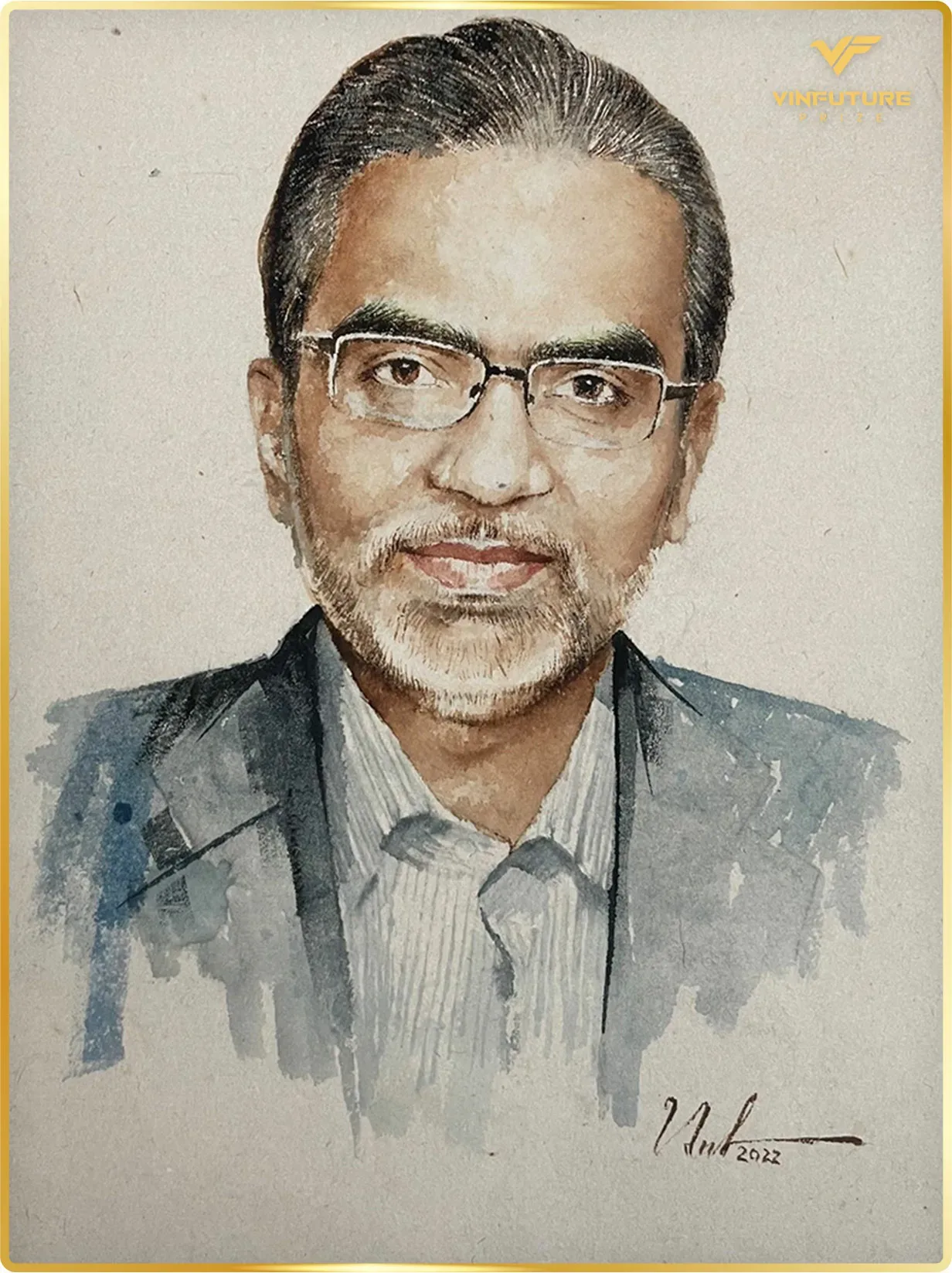BIOGRAPHY
- Institute Professor
- Deepak Parekh Institute Chair Professor and Professor of Chemistry
- Department of Chemistry, Indian Institute of Technology Madras
Prof. Thalappil Pradeep is an Institute Professor* and Professor of Chemistry. He is also an Institute Chair Professor.
He has conceptualized and built the International Centre for Clean Water (www.iccwindia.org), a new initiative of IIT Madras.
Pradeep was born on July 8, 1963. He received his Bachelor of Science and Master of Science degrees from Calicut University. He earned a Ph. D degree in chemical physics working with Professors C. N. R. Rao and M. S. Hegde at the Indian Institute of Science, Bangalore. Subsequently, he spent about two years as a post-doctoral fellow at the University of California, Berkeley and Purdue University, Indiana. Since then, he has been working at the Indian Institute of Technology Madras. He also held visiting positions at Purdue University, Leiden University (Netherlands), EPFL (Switzerland), Institute of Chemistry (Taiwan), Pohang University of Science and Technology (South Korea) and University of Hyogo (Japan).
In 2020 he received the fourth highest civilian award of India, the Padma Shri for his distinguished work in the field of Science and Technology. He has received the Prince Sultan Bin Abdulaziz International Prize for Water (2022), the Nikkei Asia Prize (2020), The World Academy of Sciences (TWAS) prize (2018), and the Shanti Swarup Bhatnagar Prize (2008) by the Council of Scientific and Industrial Research.
He is an elected Fellow of all the science and engineering academies of India, a member of several committees of Central and State governments, funding agencies such as Department of Science and Technology (DST) and is the Chairman, Board of Governors of Institute of Nano Science and Technology, Mohali (under DST).
(*) Institute Professor is the highest title a professor can earn in an institute/university. Prof. Pradeep is the second faculty member to earn this title at IIT Madras, among a faculty of 600. There are seven Institute Professors at IIT Madras currently.
SUMMARY OF WINNING ENTRY
The Special Prize dedicated to “Innovators from Developing Countries” was awarded to Professor Thalappil Pradeep for his development of a low-cost filtration system to remove arsenic and other heavy metals from groundwater, helping hundreds of millions of people around the world living with contaminated water get access to clean water.
Pradeep’s work is in the area of molecular materials and surfaces.
His group discovered that noble metal nanoparticles degrade halocarbons efficiently to amorphous carbon and metal halides at room temperature and at low concentrations. This discovery has led to the world’s first nanochemistry based water filter for pesticide removal as many pesticides of relevance are halocarbons. This technology is estimated to have reached about 10 million people.
His group developed several technologies to remove other contaminants from drinking water. Combining several such materials, an all-inclusive affordable drinking water purifier has been developed. An exciting aspect of this technology is the creation of advanced materials by simple and environment-friendly methods. This technology, named AMRIT, is being implemented now in the arsenic affected regions of India. About 1.3 million people are being served every day with arsenic free water by these installations. Several other drinking water technologies have been rolled out from his lab. To take such technologies forward, six companies have been incubated with the participation of IIT Madras. This activity is now being expanded globally.
SCALE OF IMPACT
‘Nanomaterials for water purification’ is now recognized as one of the major themes of research in the area. Pradeep has shown that completely home-grown nanotechnology, from lab to market is possible in India. His recent discovery of ultrasensitive single-particle sensors with the capacity to detect a few tens of molecules and ions may be combined with new materials to make simultaneous sensing and scavenging at ultra-trace levels possible. The new materials he has developed have been put together to make community purifiers in arsenic affected areas of West Bengal which have been running for seven years. Arsenic-free water is now being delivered to about 13,00,000 people using these technologies. The technology has now been approved for national implementation.
MEANINGFUL CHANGE
Pradeep’s work has been to find appropriate and most advanced materials to scavenge specific contaminants in water, unaffected by the presence of others, in the most cost-effective fashion, sustainably. These technologies help the poorest people in rural areas. For technology translation, he co-founded seven companies around advanced materials, capacitive deionization, atmospheric water harvesting, and advanced sensors. He founded the International Centre for Clean Water (https://iccw.world/) for the creation and dissemination of technologies in this area, with the objective of building a water-secure world. The incubated companies of Pradeep helped set up water sensor networks across the country as part of government programs, and the project is rapidly expanding. In the next ten years, it is expected that over 100 million water sensor networks will be deployed cumulatively at homes and in treatment plants.








